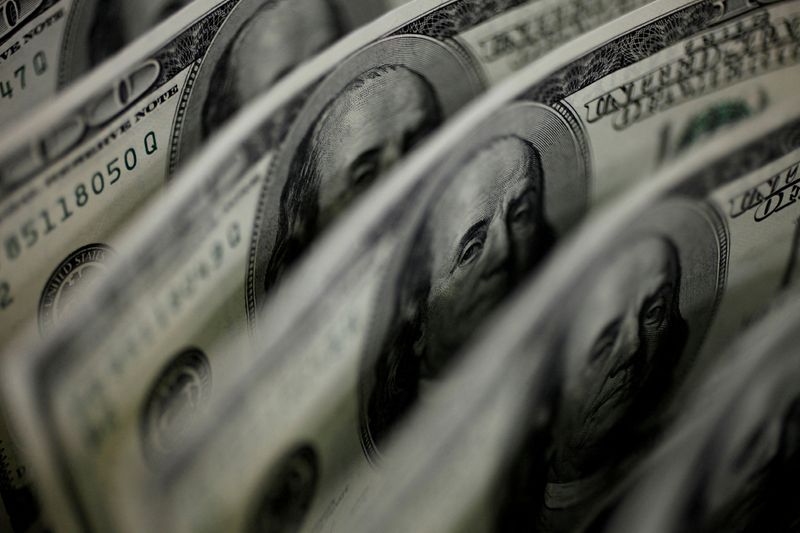By Gertrude Chavez-Dreyfuss
NEW YORK (Reuters) - The U.S. dollar's share of currency reserves reported to the International Monetary Fund rose in the first quarter of the year, in the midst of a still aggressive rate-hike cycle from the Federal Reserve aimed at curbing uncomfortably high inflation.
The greenback's share of reserves rose to 59% in the first quarter of the year, from 58.6% in the last three months of 2022.
The euro's share, however slipped to 19.8% in the first quarter, down from 20.4% in the previous three months.
Global reserves, which are reported in U.S. dollars, are central bank assets held in different currencies used in part to support their liabilities. Central banks sometimes use reserves to help support their respective currencies.
"The dollar remains an attractive destination for those seeking yield or a safe place to hide given the wobbly outlook for global growth," said Joe Manimbo, senior market analyst, at Convera in Washington.
The dollar index was down about 0.9% in the first quarter after falling as much as 7.7% in the last three months of last year. In the second quarter though, the dollar index recovered a bit, rising 0.4%.
The euro, on the other hand, rose about 1.2% in the first quarter, after surging 9.3% in the fourth quarter of 2022.
The Fed, which has raised U.S. borrowing costs last year and in 2023 than at any time since the 1980s, has raised interest rates to a range of 5.0%-5.25%, from 0% in March of 2022. U.S. rate futures have priced in on Friday an 84% chance of a 25 basis-point rate increase in the July meeting.
The U.S. central bank though is near the end of its tightening cycle.
That said, market participants believe that while the dollar will remain the dominant currency, its influence will eventually wane.
A survey by the Official Monetary and Financial Institutions Forum (OMFIF), a think tank, showed that 75 central bank reserve managers surveyed only anticipate a slight decrease in the dollar's share of total reserves to 53% in the next decade, from just under 60% now.
This shift, OMFIF, said, will be in line with the slow, decades-long trend of de-dollarization.
